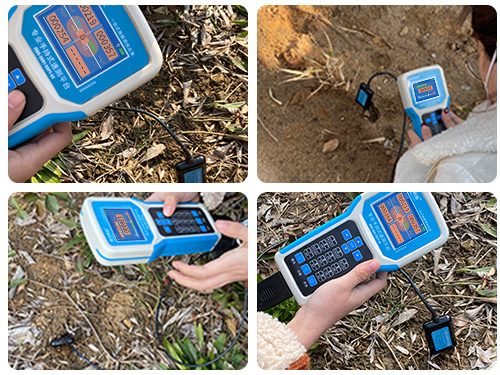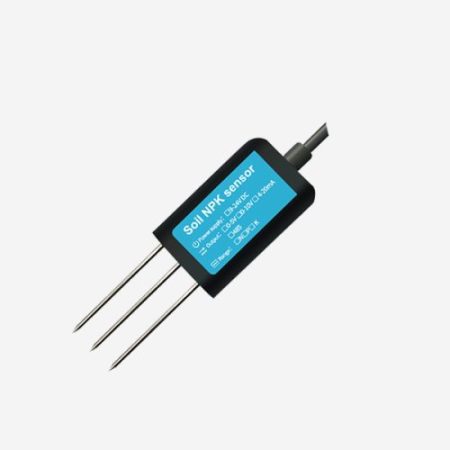A soil NPK sensor is a device designed to measure the levels of essential nutrients in soil, specifically nitrogen (N), phosphorus (P), and potassium (K). These nutrients are crucial for plant growth and are often added to agricultural soils through fertilization. Soil NPK sensors provide farmers and agronomists with real-time data on the nutrient status of the soil, enabling them to make informed decisions about fertilizer application, crop management, and soil health.
The use of soil NPK sensors in agriculture

Precision Fertilization: Soil NPK sensor allow for precise and targeted application of fertilizers. By providing accurate measurements of soil nutrient levels, these sensors help farmers optimize the use of fertilizers, reducing the risk of over-application and minimizing nutrient runoff, which can contribute to water pollution.
Improved Crop Yield and Quality: By ensuring that plants receive the appropriate levels of nitrogen, phosphorus, and potassium, soil NPK sensors can help optimize crop yield and quality. Balancing nutrient levels in the soil based on real-time data can lead to healthier plants and more efficient use of resources.
Environmental Sustainability: The use of soil NPK sensors promotes environmentally sustainable agricultural practices by reducing the environmental impact of excessive fertilizer use. By preventing nutrient leaching and runoff, these sensors contribute to the conservation of water resources and the protection of ecosystems.

Data-Driven Decision Making: Soil NPK sensors provide farmers and agronomists with valuable data for decision-making. By monitoring soil nutrient levels over time, these sensors enable the evaluation of nutrient trends, the assessment of fertilizer effectiveness, and the development of tailored nutrient management plans.
Soil Health Monitoring: In addition to NPK levels, soil NPK sensors can also provide insights into other soil parameters, such as pH, organic matter content, and moisture levels. This comprehensive data can help assess overall soil health and guide soil management practices.
Overall, soil NPK sensors play a critical role in modern agriculture by enabling precision nutrient management, promoting sustainable farming practices, and contributing to the efficient use of resources. As technology continues to advance, the integration of soil NPK sensors with precision agriculture systems and data analytics tools is expected to further enhance their utility in optimizing crop production while minimizing environmental impact.
